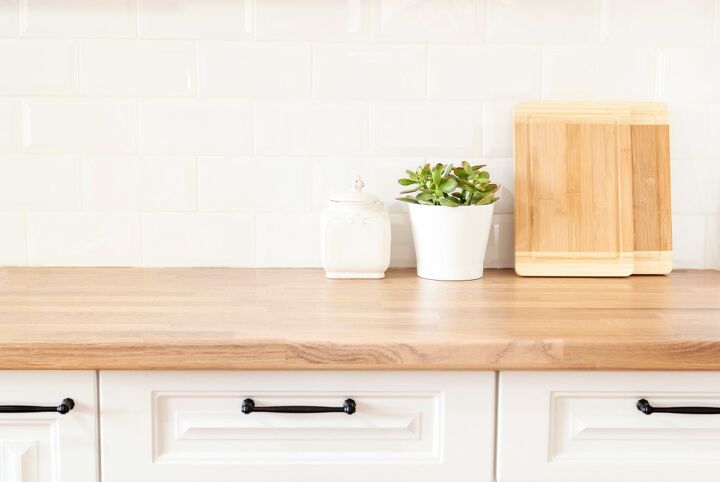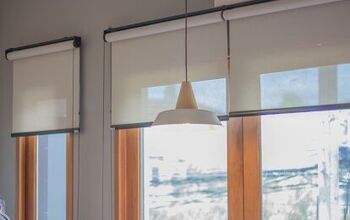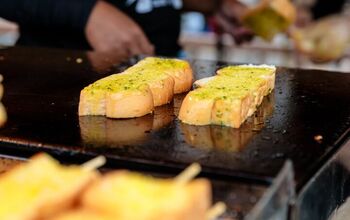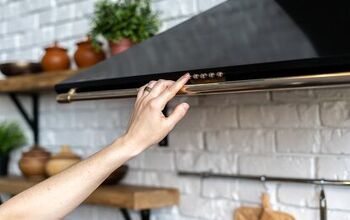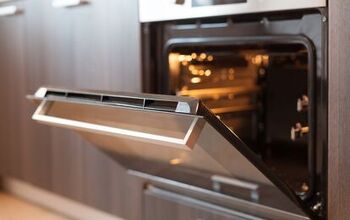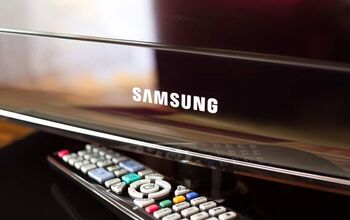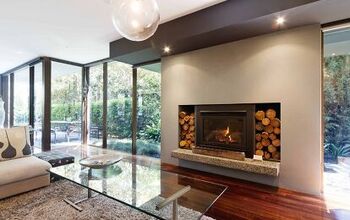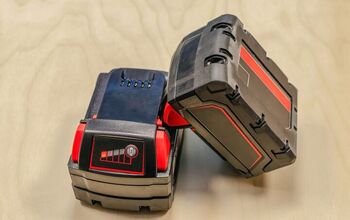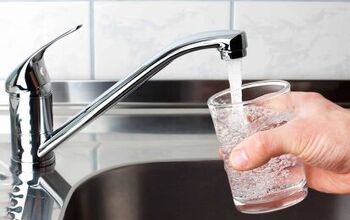Rubberwood Vs. Birch Countertops: Which One Is Better?

The kitchen is the heart of the home, and a good countertop can make or break the room. Finding a countertop that’s in your budget, fits your needs, and creates a timeless space is an incredible challenge. Wood is one of the most versatile countertops on the market, and rubberwood vs. birch countertops are no exception.
Birch and rubberwood have many similarities: color, density, quality. They do, however, have several differences: price, environmental impact, and grain. When it comes to rubberwood vs. birch countertops, rubberwood offers the best bang for your buck, but both are excellent choices.
Choosing to use wood for your counters is a huge decision, but once you’ve made it, the fun begins. Understanding what different varieties of wood have to offer is essential to the decision-making process. Let’s explore the similarities and differences between rubberwood and birch countertops so that you can feel confident with your decision.
Do You Need Countertop Installers?
Get free, zero-commitment quotes from pro contractors near you.

An Introduction To Rubberwood vs. Birch Countertops
Meal delivery kits have given rise to at-home cooking like the world had never witnessed before. In a world where more people are cooking at home, choosing the right countertop has never been more important. With interior design fads changing every day, wood countertops offer versatility and timelessness due to their ability to re-stain.
When using wood for countertops, no type is the same, each varying in finish, grain, strength, and many more. With so many different variables, it’s important to understand what each wood offers and which will work for your home. Therefore, make sure to analyze every aspect when comparing rubberwood vs. birch countertops.
Rubberwood vs. Birch Countertops: Cost
When cost of living is at an all-time high, housing is typically the biggest factor. Renovating a home on a budget can mean sacrificing quality, which does not bode well in the long run. Thankfully, there are many options for you to create your dream home without forgoing your standards.
Rubberwood is a hardwood made from recycled rubber trees. After a rubber tree has finished producing rubber (about 30 years), the wood is harvested and used for building purposes. This allows the cost of rubberwood to be half the cost of other comparable hardwoods on the market.
Birch is a hardwood tree with light-colored wood, similar to rubberwood in many ways. Unfortunately, the price is almost double what rubberwood costs, which makes this tougher on the wallet.
Winner: Rubberwood. Rubberwood is the obvious winner in this category, touting an almost 50% discount from other hardwoods on the market.
Rubberwood vs. Birch Countertops: Grain
Arguably the most beautiful aspect of wood is its intricate grain. Like snowflakes, each plank has a different story to tell, and when put together, they create a beautiful tale.
One of the major complaints about rubberwood is its lack of intricacy in regard to its grain. An alternative that combats this lack of grain is to join pieces together to create a pattern.
Birch, on the other hand, has a lovely grain. Same as rubberwood, it can be pieced together to create a pattern but can also stand on its own.
Winner: Birch. As far as grain patterns go in terms of rubberwood vs. birch countertops, birch is the winner here. With long, straight grains, and a fine texture, birch can add that extra pizazz your kitchen has been searching for.
Rubberwood vs. Birch Countertops: Environmental Impact
Sustainability is the future of design. With the changes happening in our environment every day, reducing your carbon footprint with home improvement projects is imperative. The cost of materials increases daily, so using quality, natural materials can help both you and the planet.
Rubberwood is made from recycled rubber trees after they are no longer able to produce latex. The duality of this tree makes it unique to other materials and is why it is so inexpensive.
Another reason it is such an inexpensive option is because it’s a local material for many material manufacturers. Malaysia, for example, is a major rubber exporter, and they use much of their leftover wood to create furniture. Since they already have the wood on hand, shipping and manufacturing costs are significantly lower.
Birch, on the other hand, is not a recycled wood. It is, however, a relatively sustainable hardwood because it has a shorter harvest lifespan.
Winner: Rubberwood. Due to both its recycled material and local source for manufacturing, rubberwood is the clear winner in this category.
Rubberwood vs. Birch Countertops: Durability
All wood counters have a specific care ritual in order to keep the wood in great shape. Weekly oiling, yearly resealing, and care when handling heat can quickly become a chore nobody wants to do. If you are set on wood countertops, understanding their durability can save you a lot of heartache in the future.
Rubberwood is classified as a hardwood, but on the Janka hardness scale, it is considered “moderate hard” at 890. Essentially, rubberwood is capable of withstanding just about anything your culinary needs throw at it.
Birch is also a classified hardwood, measuring at 1,260 on the Janka hardness scale. Its durability is very similar to rubberwood and can withstand general kitchen wear and tear.
Winner: Tie. Although birch is technically a “harder” wood, in the case of countertops, harder does not equal better. Both birch and rubberwood offer a quality surface that will withstand years of birthdays and holidays.
Rubberwood vs. Birch Countertops: Trend Forecast
The rise of social media has led to something called “micro-trends.” This refers to the speed at which trends can spread due to the constant consumption of fads in media. While pillows and paint may be easy to change, updating your kitchen is an expensive and time-consuming undertaking.
With wood, you can change the countertop color by a simple sand and stain job, helping your kitchen sustainably transition trends. As a timeless material, wood has really seen a rise in recent interior design trends. The warm tones and natural look closely follow the cottage-core and farmhouse style seen in the past years.
Both rubberwood and birch are light-colored hardwood trees that have very similar looks. They are both easily transitional when it comes to staining, making them a good option for changing trends.
Winner: Tie. Since both types of wood have similar looks and can be stained any color, this category has no winner.
Related Questions
Are granite countertops worth the price?
Granite countertops are no doubt the Cadillac of kitchen decorum. Each slab, a different pattern, begging to have fresh pastries kneaded out on the cool surface. For many of us, the question is not, “do I want granite” but “what do I compromise for granite.” As far as resale value goes, granite is a no-brainer. Some argue that granite will come out of style, but the luxury and timelessness of it certainly says otherwise.By adding granite countertops to your home, the value can increase as much as 25% of its retail value. You will be able to profit from this small investment for years to come.
Are the colorful kitchen trends tacky?
Green has seen a major comeback for interior design in 2022, and the kitchen is no exception. Though fresh and exciting, bright colors can be a frightening undertaking for major projects, like the kitchen. As we quietly lay the all-white kitchen to rest, we must pose the question; are colorful kitchens back?Deciding on a color palette is brutal, but choosing kitchen cabinets or countertops touting bright colors is even harder. As far as resale value goes, bright colors don’t last the test of time, and you should avoid them. There are other ways to itch that colorful scratch that don’t include your major investment pieces.Choosing a colorful or contrasting backsplash is a great way to express your personal style while keeping your resale value. Adding bright houseplants, decor, or even displaying your kitchenware can give your kitchen a whole new look without sacrificing value.
Do You Need Countertop Installers?
Get free, zero-commitment quotes from pro contractors near you.

Our Final Take
If you are set on wood countertops and are looking at rubberwood vs. birch countertops, they are both excellent options. Both types of wood have similar looks, function, quality, and pattern, making them difficult to compare visually.
Rubberwood, however, has several advantages over birch, namely cost and sustainability. This puts rubberwood as the winner for this reason.

Stacy Randall is a wife, mother, and freelance writer from NOLA that has always had a love for DIY projects, home organization, and making spaces beautiful. Together with her husband, she has been spending the last several years lovingly renovating her grandparent's former home, making it their own and learning a lot about life along the way.
More by Stacy Randall



